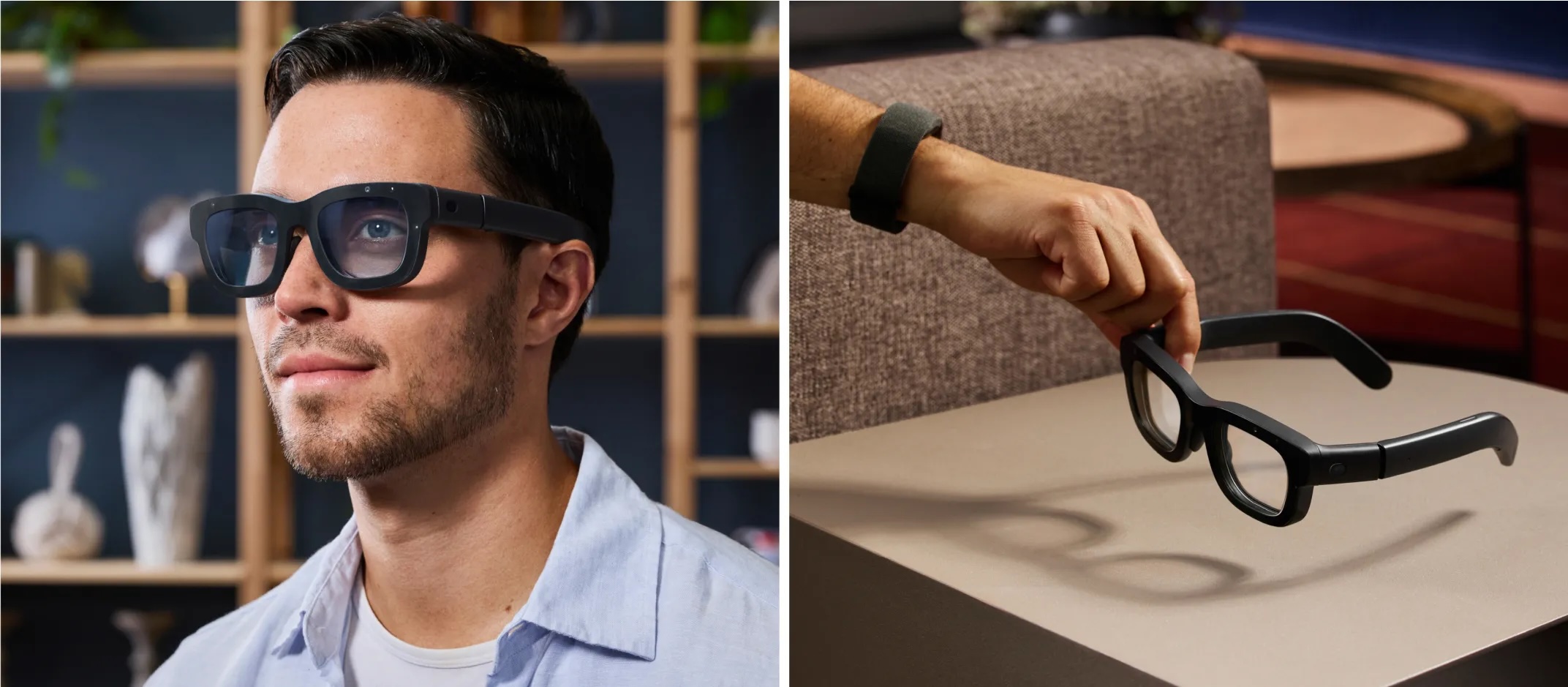3D Visual messaging for Orion (AR Glasses)
Organization: Meta Reality Labs
Time: 02.2022 - 04.2022
Project team: Sangwoo Han (Design Lead), Jessica Abad Kelly (Product Manager), Zeke Brill (Design Prototyper), Julia Moore (UX Researcher)
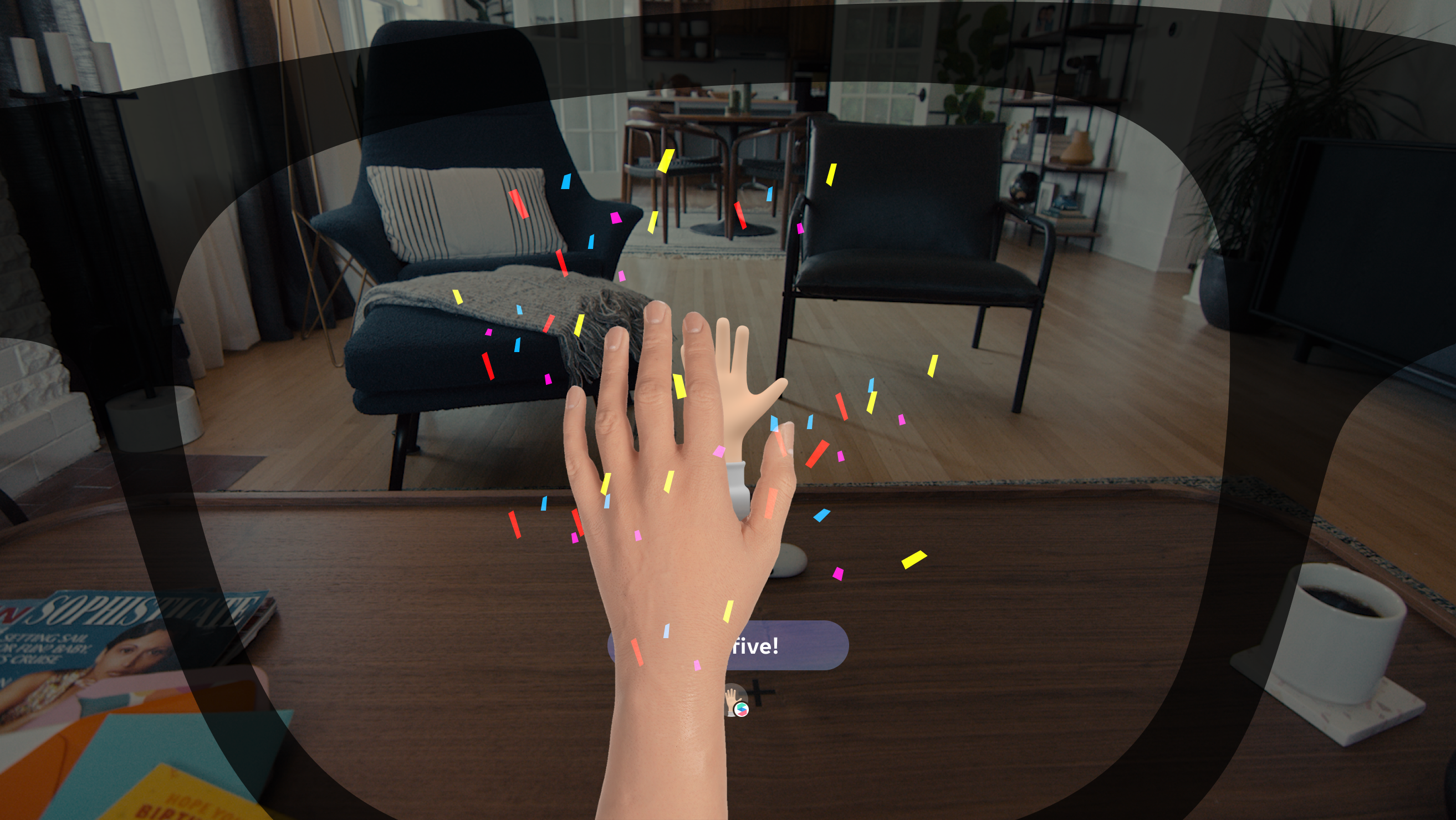
1. Project goals
Orion is Meta’s first true Augmented Reality glasses. Equipped with the cutting-edgy technology, the device aims to bring groundbreaking changes to the realm of wearable devices and spatial computing. As a product designer in Orion’s communication team, I was tasked to explore net new communication features for the platform. The key project goals were
- Define new communication leveraging 3D visual content features for Orion
- Work with UXR to conduct initial validations
- Deliver the design strategy for partner design teams to further developement
2. Navigating the technology and user values
In this project, there are a few technical as product aspects of Orion that played key roles.
-
3D & surface aware: The content can be rendered sptially over the real world.
-
Seamlessly interactive: Through the EMG wrist band that detects hand gestures, users can interact with virtual content as if they are physical objects
-
Highly personal: Orion is set to provide highly customized computing environments that reflects user’s preferences
On the other hand, I dove deeper into user research studies on messaging needs for Meta’s family of apps(Messenger, Whatsapp, and Instagram Direct) to understand what user are looking for in terms of visual messaging. From auditting, I’ve found out there are largelty two categories of visual messaging in asynchronous digital communications.
Photo/video messaging :
-
Photos and videos that capture and share real-time events
- Filters and decorative stickers to add more expressiveness
Expressive message
-
Gifs, stickers, emoji, animoji, reactions, ..
-
Tend to be ephemeral, consumed in the context of current conversation
- Used to clarify the emotional meaning that’s hard to be captured in a text
Based on the insights, I’ve come up with two themes for further design explorations.
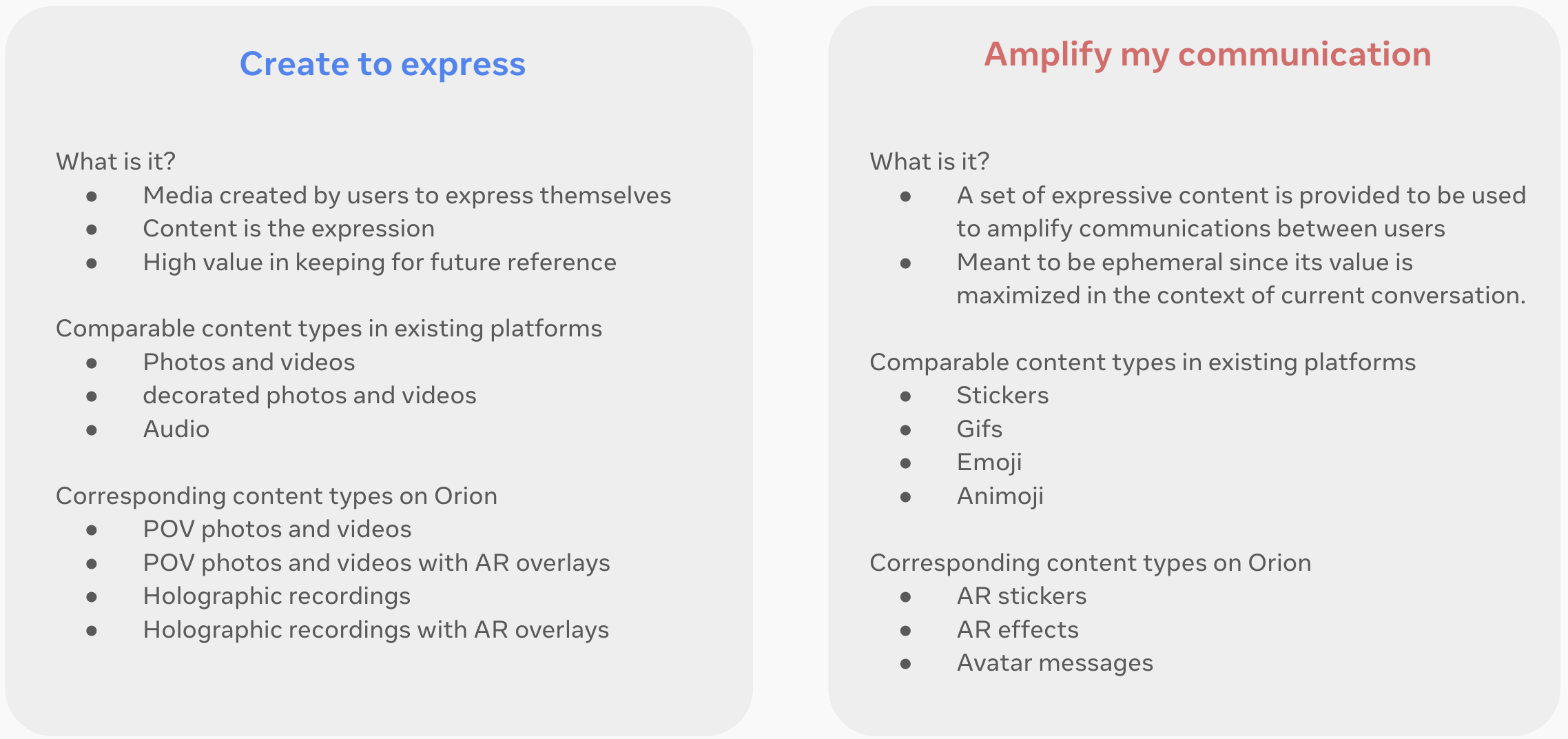
3. Create to express - Hologram message
Using Orion’s inward-facing camras, holographic recordings can offer users unique opportunities in expressiveness with abilities to deliver realistic capture of a self as if they are together in person.
User scenario examples
- Send a special holographic birthday message with firework effects
- Show off my new haircut
Success factors for holographic recordings
- Ease of capturing a hologram using Stage
- Ability to easily edit and share after capturing
- Variety of options of AR effects to choose from that uniquely empowers my holograms
Sender side user flow
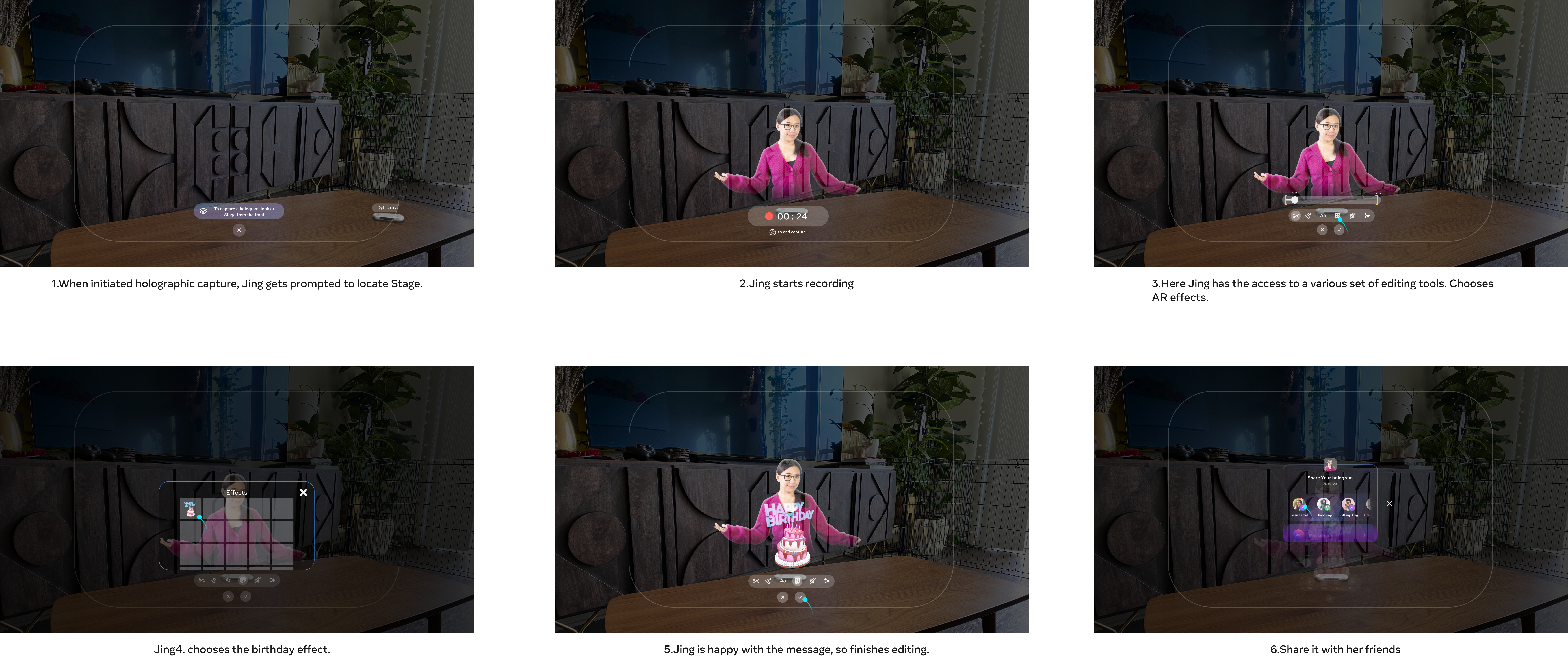
Receiver side user flow

4. Amplify my communication - AR Stickers
-
Ephemeral content with relatively lower footprint that users can quickly select and send to clarity their emotional meanings that’s hard to be captured in a text
-
Meaning can be applied rather than inherent for certain relationships. When meaning is applied, the motivation for use is unique to the people and conversation)
-
Used as approximations of subtle nuance of in-person communication (body language, facial expressions, and tone of voice)
-
Fun, humorous, cute, playful features are subject to a novelty effect more so than those being used to add meaning
- Success factors
- Variety of content to choose from
- Ease of sending and receiving
- Opportunities to spark further conversations
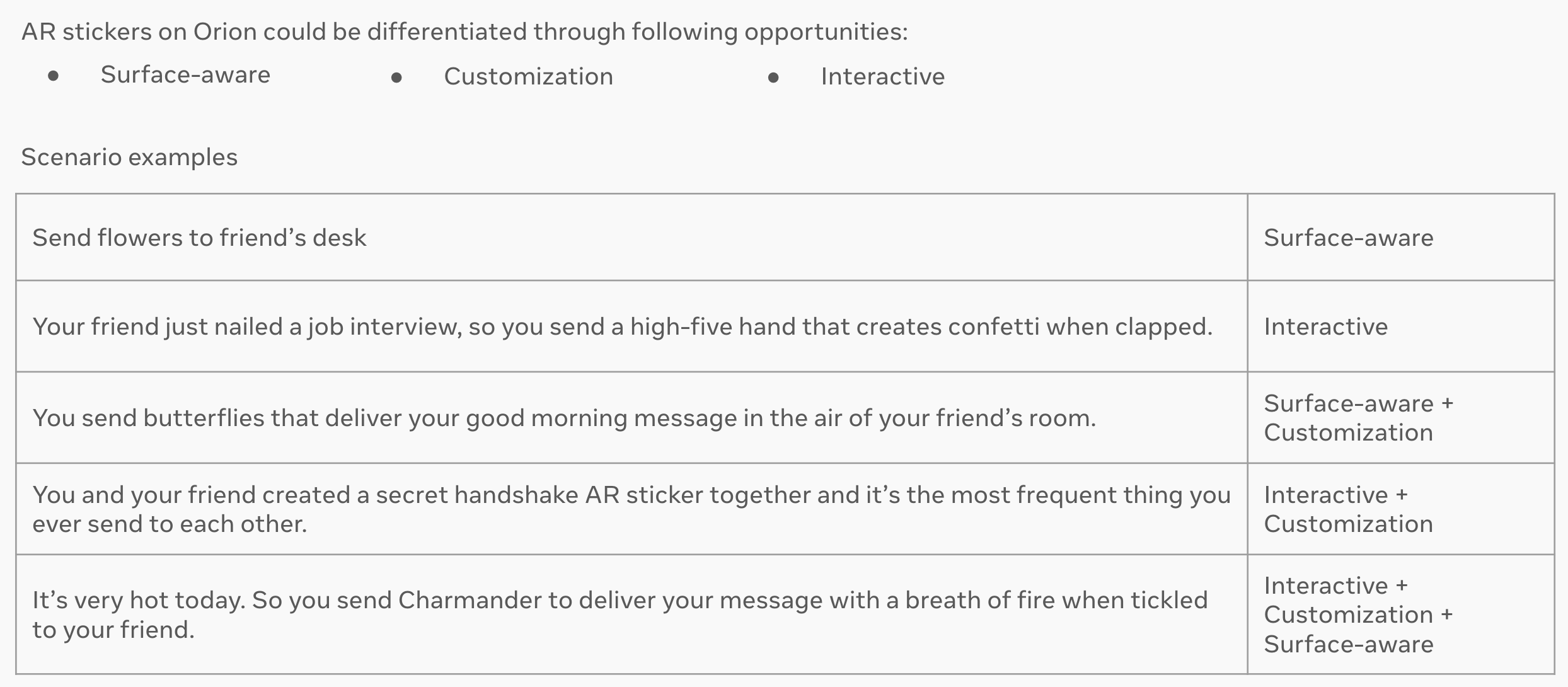
Sender side user flow

Receiver side user flow

Additional content types

5. UXR Takeaways
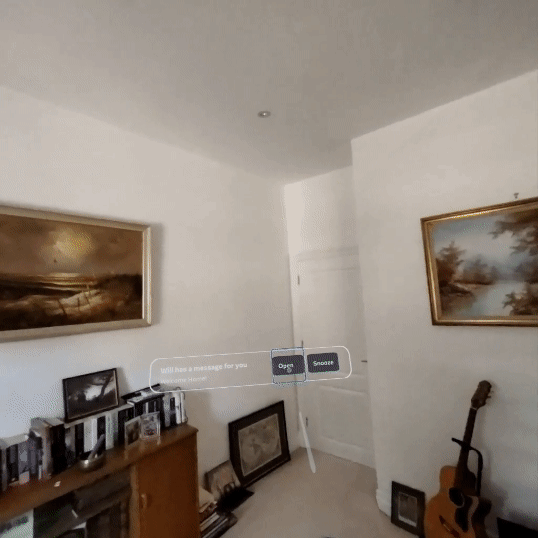
UXR Prototype
⇨ Consider tapping into the Spark creator community to build a content platform, as well as working with vendors to create pop-culture inspired stickers
Participants suggested that the AR stickers in the concepts were fun but not very reusable, and some wanted more customization options.
⇨ Conduct follow-up UXR with MVP around retention and customization needs
Participants found the end-to-end flows to be intuitive and seamless, including the asymmetrical concepts, though a few were concerned with the number of steps required to send/receive AR stickers.
⇨ Consider designing a system leveraging AI technology to recommend the most appropriate stickers based on the context of the conversation
